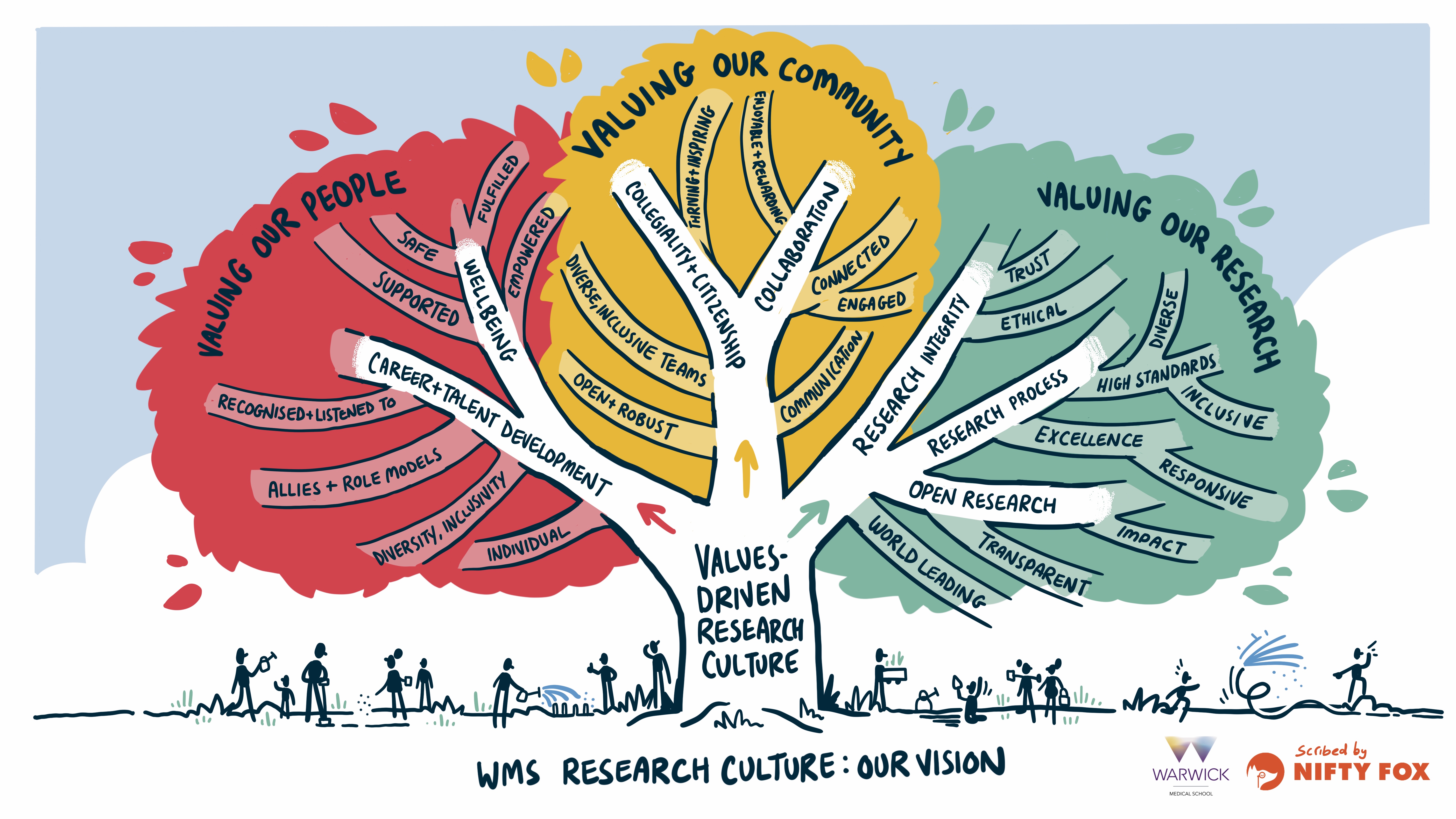Research culture and citizenship
Research culture embodies the behaviours, values, expectations, attitudes and norms that define our research communities. Positive research cultures foster an environment of integrity, collaboration, and continuous learning, which drives high-quality and ethical research. Research citizenship emphasises collaboration and community engagement which strengthens the integrity and impact of your research.

-
Understand how negative research culture can lead to poor research practice, impair integrity and reduce reproducibility, and conversely how good research culture can promote integrity and reproducibility.
-
Understand your responsibilities as a researcher. The University of Edinburgh follows UK Research Integrity Office’s (UKRIO) Code of Practice for Research and the Universities UK (UUK) Concordat to Support Research Integrity.
-
Consider joining committees to more actively improve research culture. This could include postgraduate and postdoctoral societies, Equality, Diversity and Inclusion (EDI) committees, or local research culture groups.
-
Additional requirements and responsibilities apply to line managers or group leaders:
-
Promote good research culture (e.g. Lab handbooks to outline the ethos of a research group, team building, supportive work environment, flexible working, good team morale).
-
Group leaders can have an important influence on group members’ awareness and uptake of good research practices. When supervising others, be sure to model, actively promote, and support good research practices. For supervising students, helpful resources include the IAD Postgraduate Research Supervisors website.
-
- “What researchers think about research culture” (Wellcome)
- “What is research culture?” (University of Edinburgh)
- Benjamin C Tendler, Maddie Welland, Karla L Miller, The WIN Handbook Team (2023) Research Culture: Why every lab needs a handbook eLife 12:e88853 https://doi.org/10.7554/eLife.88853